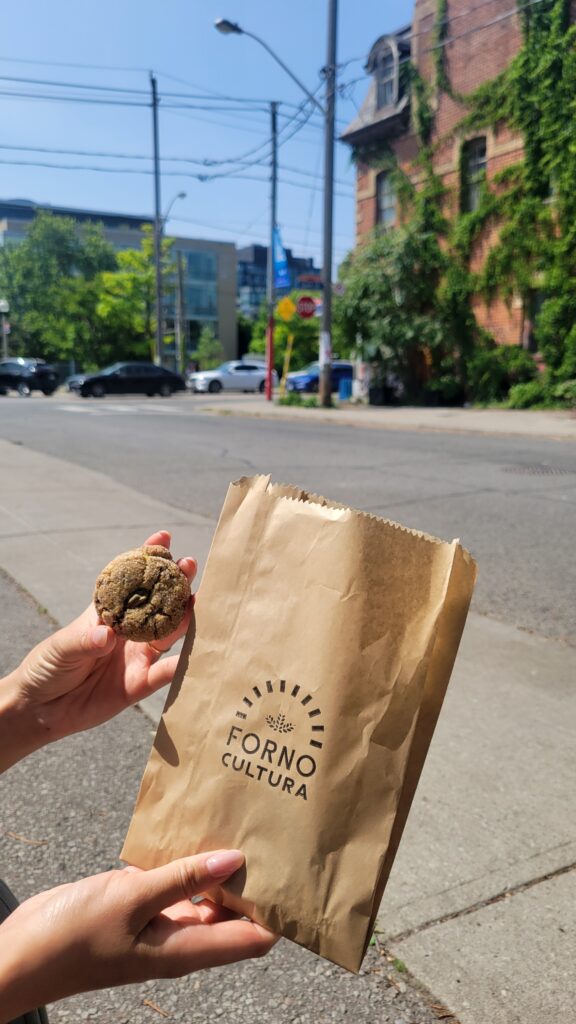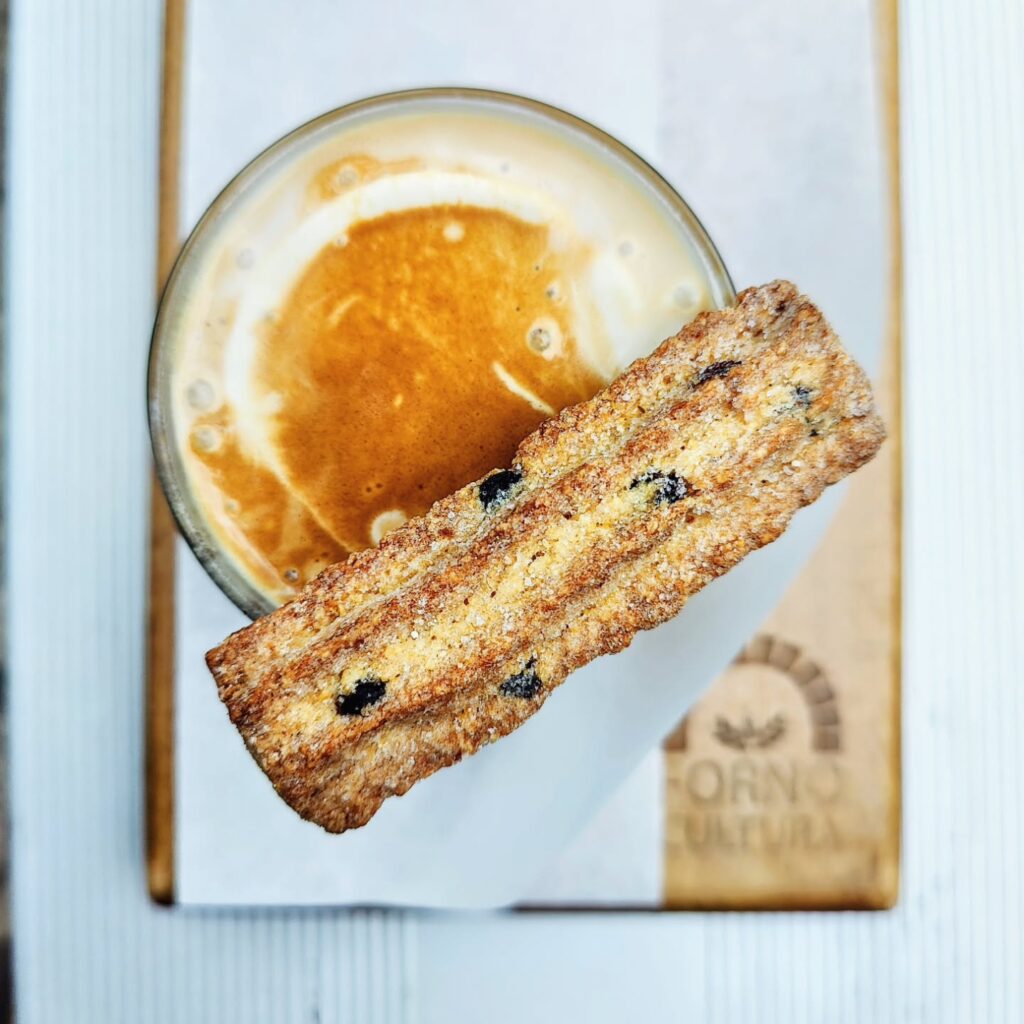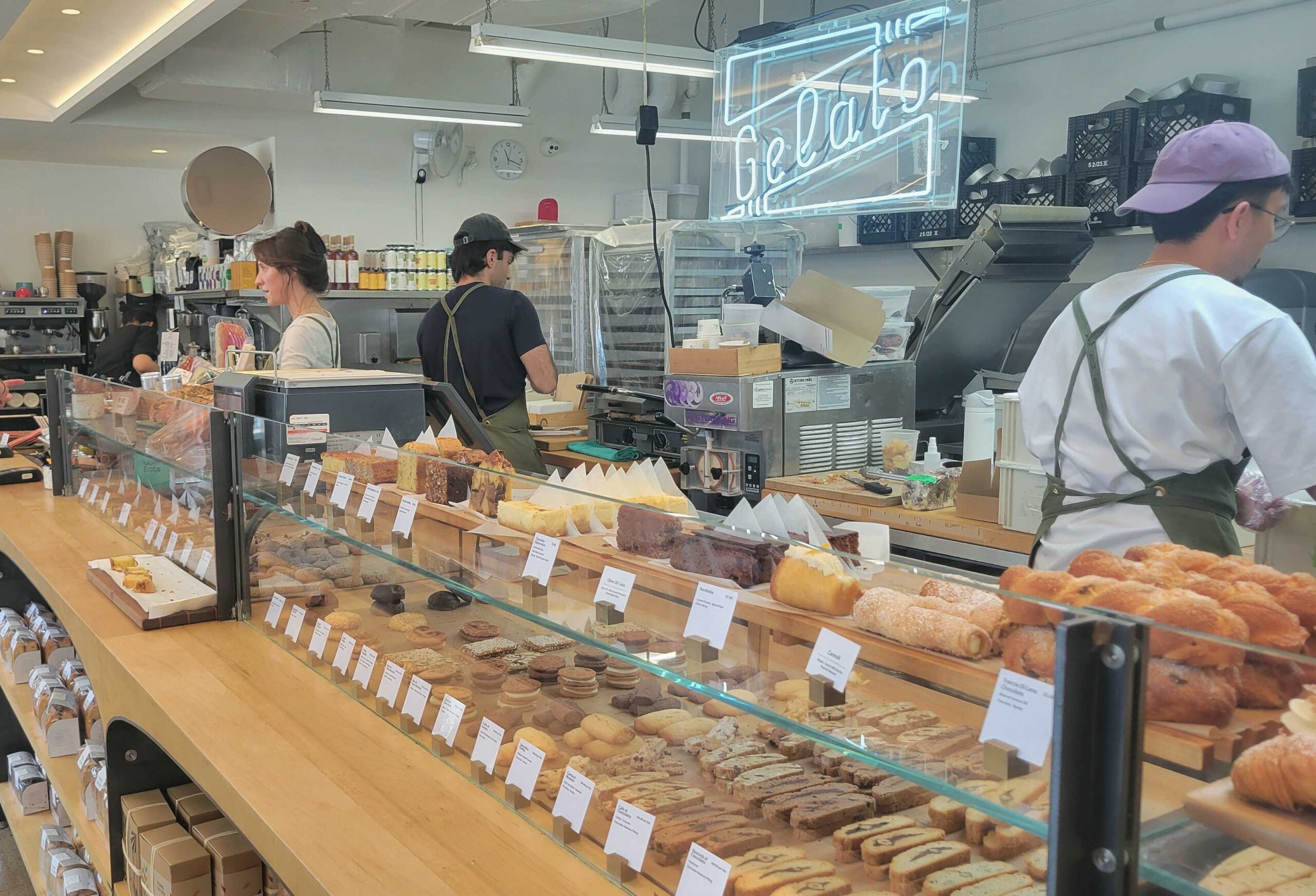Forno Cultura on Queen: Bread That Builds Community
There’s something magnetic about the scent of fresh bread drifting from a storefront. But in the case of Forno Cultura on Queen, what draws you in goes beyond the aroma. It’s the feeling of being welcomed into something deeper. Part bakery, part cultural institution, Forno Cultura is a third place defined by ritual, heritage, and the sensory power of food. It’s where Toronto’s creative class lingers over espresso, where regulars are known by name, and where the warmth of tradition is baked into every detail: from its crusty pane rustico to its gleaming tiled counters.
This is a space where food becomes an act of gathering, a reflection of identity, and an invitation to slow down.
The Ritual of Breadmaking
Forno Cultura traces its roots to a deep, generational history of Italian baking. Founder Andrea Mastrandrea grew up watching his father work as a baker, kneading dough before dawn, tending to mother yeast, and respecting the time-honoured rhythms of fermentation. When he opened Forno Cultura, it wasn’t simply to sell bread. It was to carry forward a philosophy: that food, made with integrity, connects us.
That philosophy shows up in every loaf and biscotti. Their bread is fermented naturally with mother yeast, baked slowly, and made without additives. But beyond the technique, the bakery honors the ritual of baking: an art passed down over five decades. In an age of convenience, Forno Cultura doubles down on intention.

Read more in Bakers Journal: Five Decades of Tradition
Food as a Third Place
Much like a favorite café or community centre, Forno Cultura offers a sense of place. But instead of plugging in a laptop or holding a meeting, the ritual here is different: ordering a small espresso, choosing the perfect biscotto, and pausing. Really pausing. The design encourages it: open shelving lets you see the bakers at work, and bar seating invites interaction.
This bakery becomes a third place through slowness. The kind of space where you come to reflect or connect. And because of that, it draws a loyal following of creatives, architects, designers, and commuters who make Forno Cultura part of their routine. A daily act of presence. A moment of belonging.
How Forno Cultura on Queen Became a Cultural Space, Not a Commercial One
When Azure profiled Forno Cultura’s Queen West location, they noted how the space had once been a truck rental shop. Industrial, functional, uninspired. Today, it hums with conversation and espresso steam, transformed into a cultural hub where food meets design and story.
The bakery avoids a franchise approach. Each location is tailored to its neighborhood, whether it’s Union Station, King West, or the original on Queen. In the subterranean biscotti boutique at Union Station, shimmering tiles and a curated menu mirror the rhythm of a commuter’s day, blending urban design with Italian heritage.
Here, the pace, interaction, and familiarity create a rhythm that feels communal. That ethos sets it apart. Forno Cultura resists the pull of commercial repetition. Instead, it leans into context. The result is a business that behaves like a cultural venue.
Explore the Designlines feature on Union Station’s biscotti boutique
The Legacy of Forno Cultura
Each Forno Cultura location was chosen for a reason. On Queen West, the space reflects the creative pulse of the neighborhood. In Union Station, it offers ritual and reprieve amid a hectic commute. At King West, it stands as a neighborhood anchor, a reliable, daily rhythm.
These sites weren’t selected by chance. They are strategically placed within Toronto’s most dynamic districts, neighborhoods known for creativity, movement, and a hunger for meaningful experiences. The bakery grows organically from its surroundings. Like a good sourdough, it rises with the surrounding culture.
Read more on Urbaneer’s take on Forno Cultura

Why It Works
Forno Cultura’s success lies in its blend of heritage, design, and slowness. It offers modern rituals in a world that often moves too fast. It welcomes with warmth and engages the senses. And above all, it treats food as a connector: a reason to be in the same space, at the same time, with others.In a city where culture can sometimes feel siloed or transactional, Forno Cultura reminds us that sharing bread might still be the oldest form of belonging.
If you’re interested in how design-forward food and drink spaces build community, check out The Ace Hotel Toronto: Redefining Toronto’s Third Place Culture.
